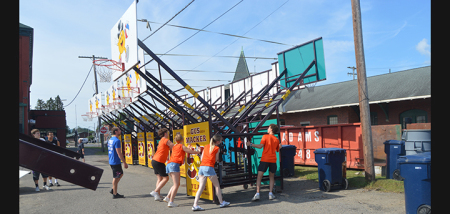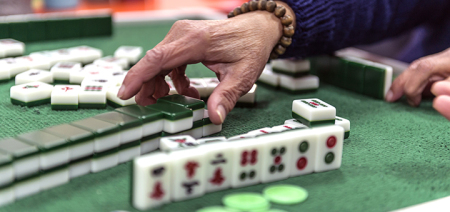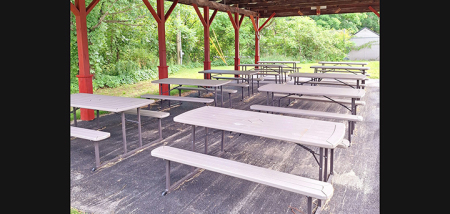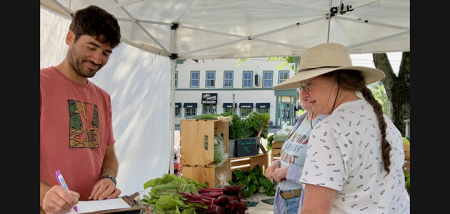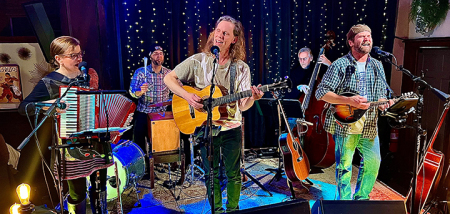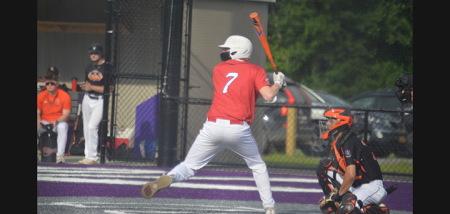A Lifetime Of Difference
Published:
May 16th, 2014
By:
Steven and Cokie Roberts
It's graduation week at George Washington University, where Steve has taught for the last 23 years. After the final exam in his class, a student quietly handed him a note that read in part: "You have believed in me since the beginning and told me not to sell myself short, and for that I am grateful."
Warm words, deeply appreciated. They also turn out to be really important.
A survey conducted by Gallup and Purdue University recently measured what things have the most influence on successful college graduates who are "engaged at work and experiencing high well-being after graduation." The price -- or prestige -- of the institution they attended had little impact, the survey concluded.
What did matter to students was their college experience, particularly professors who "made me excited about learning ... cared about me as a person (and) encouraged me to pursue my goals and dreams."
"It matters very little where you go, it's how you do it," Brandon Busteed, executive director of Gallup Education, told The Wall Street Journal. "Having a teacher who believed in a student makes a lifetime of difference."
Busteed is exactly right. We were both very fortunate as students to know adults who believed in us, but also pushed us. Hard. Young people live up to the expectations their elders have of them, and the worst thing you can do -- as a parent or teacher, mentor or boss -- is set the bar too low.
A few years ago, Steve was visited in his office by a student, an African-American woman from a broken home who never seemed to have enough time or financial security to focus on Steve's writing class.
When she asked, "What do you expect of me?" he was taken aback for a moment.
Then he answered, "Excellence, damn it, and I'm not getting it from you."
From that moment on she plunged into her assignments and blossomed into one of the top writers in the class. Tough love is real. And it works.
We both had parents who encouraged excellence, in reading and writing, thinking and speaking. We also had mentors outside our families who built on the foundations we got at home.
Cokie dedicated her book, "Founding Mothers," to the nuns who taught her: the religious of the Society of the Sacred Heart, "who take girls seriously -- a radical notion in the 1950s." One of them was her debate coach, Sister Joan Kirby, who says today that the experience changed both of their lives. Sister Kirby has spent her second career working for peace and represents an interfaith educational organization at the United Nations. Cokie thanks her teacher and coach every time she appears on a TV show with overbearing and underinformed men.
Steve's version of Sister Kirby was John Rodman, a young assistant professor of government at Harvard in the early 1960s. They met weekly, and Rodman would repeatedly hand back his papers with the five most important words Steve heard during his entire college career: "This is not good enough."
Rodman eventually moved to Pitzer College in California, and when he died in 2003, the school's president, Laura Skandera Trombley, said words that Steve knows to be true: "John impacted scores of students, who today talk about how he was the teacher who opened their minds and taught them not just his course's content but how to conduct their lives with integrity and intelligence."
After graduation, Steve went to work for James "Scotty" Reston, then the Washington bureau chief of The New York Times. Scotty was at the top of his profession, writing a column three times a week that widely influenced what the capital thought and said, but he always took time for his young "clerks," as he called them.
He told them stories, promoted their work and offered them advice. We were already dating at the time, and we're both grateful that Steve -- eventually -- took seriously his mentor's admonition to "marry that girl."
By the time Scotty died in 1995, at age 86, he had employed 26 clerks, and he wanted them to be the ushers and the pallbearers at his funeral. Not the presidents or prime ministers, the ambassadors or the senators he had known and interviewed, but the young people he had taught and nurtured.
When Steve helped carry Scotty's coffin out of the church, his mentor was speaking to him, imparting one last lesson. At the end, he was saying: This is what matters most. The lives you touch. The love you give. The ones you believe in.
Comments
